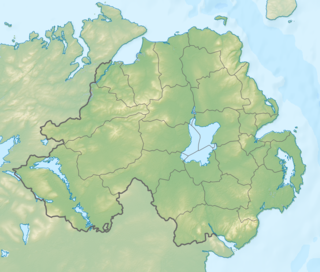 W
WThe 1973 Afghan coup d'etat was the relatively bloodless overthrow of King Mohammed Zahir Shah on 17 July 1973 and the establishment of the Republic of Afghanistan. The non-violent coup was executed by the then-Army commander and royal Prince, Mohammed Daoud Khan who led forces in Kabul along with then-chief of staff General Abdul Karim Mustaghni to overthrow the monarchy while the King was abroad in Ischia, Italy. Daoud Khan was assisted by leftist Army officers and civil servants from the Parcham faction of the PDPA, including Air Force colonel Abdul Qadir. King Zahir Shah decided not to retaliate and he formally abdicated on August 24, remaining in Italy in exile. More than two centuries of royal rule ended.
 W
WThe popular uprising of 14 October 1973 was a watershed event in Thailand's history. The uprising resulted in the end of the ruling military dictatorship of anti-communist Thanom Kittikachorn and altered the Thai political system. Notably, it highlighted the growing influence of Thai university students in politics.
 W
WThe Angolan War of Independence, called in Angola the Luta Armada de Libertação Nacional, began as an uprising against forced cultivation of cotton, and it became a multi-faction struggle for the control of Portugal's overseas province of Angola among three nationalist movements and a separatist movement. The war ended when a leftist military coup in Lisbon in April 1974 overthrew Portugal's Estado Novo regime, and the new regime immediately stopped all military action in the African colonies, declaring its intention to grant them independence without delay.
 W
WThe Araguaia guerrilla was an armed movement in Brazil against its military dictatorship, active between 1967-1974 in the Araguaia river basin. It was founded by militants of the Communist Party of Brazil, the then Maoist counterpart to the Brazilian Communist Party (PCB), which aimed at establishing a rural stronghold from whence to wage a "people's war" against the Brazilian military dictatorship, which had been in power since the 1964 coup d'état. Its projected activities were based on the successful experiences led by the 26th of July Movement in the Cuban Revolution, and by the Communist Party of China during the Chinese Civil War.
 W
WThe Caravan of Death was a Chilean Army death squad that, following the Chilean coup of 1973, flew by helicopters from south to north of Chile between September 30 and October 22, 1973. During this foray, members of the squad ordered or personally carried out the execution of at least 75 individual communists held in Army custody in certain garrisons. According to the NGO Memoria y Justicia, the squad killed 97 people: 26 in the South and 71 in the North. Augusto Pinochet was indicted in December 2002 in this case, but he died four years later without having been judged. His trial, however, is ongoing since his and other military personnel and a former military chaplain have also been indicted in this case.
 W
WThe 1973 Chilean coup d'état was a military coup in Chile that deposed the Popular Unity government of President Salvador Allende. On 11 September 1973, after an extended period of social unrest and political tension between the opposition-controlled Congress and the socialist President, as well as economic warfare ordered by U.S President Richard Nixon, a group of military officers led by General Augusto Pinochet and Admiral José Toribio Merino seized power in a coup, ending civilian rule.
 W
WThe Communist insurgency in Malaysia, also known as the Second Malayan Emergency, was an armed conflict which occurred in Malaysia from 1968 to 1989, between the Malayan Communist Party (MCP) and Malaysian federal security forces.
 W
WThe Communist insurgency in Sarawak occurred in Malaysia from 1962 to 1990, and involved the North Kalimantan Communist Party and the Malaysian Government. It was one of the two Communist insurgencies to challenge the former British colony of Malaysia during the Cold War. As with the earlier Malayan Emergency (1948–1960), the Sarawak Communist insurgents were predominantly ethnic Chinese, who opposed to British rule over Sarawak and later opposed the merger of the state into the newly created Federation of Malaysia. The insurgency was triggered by the 1962 Brunei Revolt, which had been instigated by the left-wing Brunei People's Party in opposition to the proposed formation of Malaysia.
 W
WThe Ecclesiastical coup is the name given to the events staged by three bishops of the Orthodox Church of Cyprus against the President of the Republic of Cyprus, Archbishop Makarios III, in the period from March 1972 to July 1973.
 W
WThe Ezeiza massacre took place on June 20, 1973 at Puente 12(34.722438°S 58.513419°W), the intersection of General Ricchieri freeway and Camino de Cintura, some 10 km distant from Ezeiza International Airport in Buenos Aires, Argentina.
 W
WThe Guinea-Bissau War of Independence was an armed independence conflict that took place in Portuguese Guinea between 1963 and 1974. Fought between Portugal and the African Party for the Independence of Guinea and Cape Verde, an armed independence movement backed by Cuba and the Soviet Union, the war is commonly referred to as "Portugal's Vietnam" due to the large numbers of men and amounts of material expended in a long, mostly guerrilla war and the internal political turmoil it created in Portugal. The war ended when Portugal, after the Carnation Revolution of 1974, granted independence to Guinea-Bissau, followed by Cape Verde a year later.
 W
WThe Battle of Ismailia took place between the Egyptian Army and the Israeli Defense Forces (IDF) during the last stages of the Yom Kippur War during October 18–22, 1973, south of the city of Ismailia, on the west bank of the Suez Canal in Egypt. The battle itself took place as part of the larger IDF-launched Operation Abiray-Lev, in an attempt to seize Ismailia and thereby sever the logistical and supply lines of most of Egypt's Second Field Army across the Suez Canal.
 W
WFollowing the deterring effect of Operation Vantage (1961), Kuwait gained its recognition by Iraq in 1963. Both countries had ongoing border disputes throughout most of the 1960s, although often resolved and restrained within the history of Arab solidarity.
 W
WIn the late hours of 3 February and the early hours of 4 February 1973, six men, all of whom were Catholics, were shot and killed in the New Lodge area of north Belfast, four of them were shot dead at the junction at Edlingham Street by British Army snipers, the other two men were shot dead by the Ulster Defence Association (UDA). Irish Nationalists and Republicans believe that collusion took place between the British security forces and Loyalist paramilitaries in the shootings. The six men who were killed became known as "The New Lodge Six".
 W
WOperation Badr or Plan Badr was the code name for the Egyptian military operation to cross the Suez Canal and seize the Bar-Lev Line of Israeli fortifications on October 6, 1973. Launched in conjunction with a Syrian assault on the Golan Heights, this attack marked the start of the Yom Kippur War.
 W
WThe Provisional IRA Honey Trap killings occurred on 23 March 1973. Volunteers from the Provisional IRA's (IRA) Belfast Brigade shot dead three off-duty soldiers from the British Army who had been lured to a house by two females on the Antrim Road in Belfast, Northern Ireland. A fourth soldier survived the shooting.
 W
WThe 1973 Rwandan coup d'état, also known as the Coup d'état of 5 July, was a military coup staged by Juvénal Habyarimana against incumbent president Grégoire Kayibanda in the Republic of Rwanda. The coup took place on 5 July 1973 and was considered by many as a betrayal.
 W
WEl Tanquetazo or El Tancazo of 29 June 1973 was a failed coup attempt in Chile led by Lieutenant Colonel Roberto Souper against the government of Socialist president Salvador Allende. It is named because the rebelling officers primarily used tanks. It was successfully put down by loyal Constitutionalist soldiers led by Army Commander-in-Chief Carlos Prats.
 W
W1973 in the Vietnam War began with a peace agreement, the Paris Peace Accords, signed by the United States and South Vietnam on one side of the Vietnam War and communist North Vietnam and the insurgent Viet Cong on the other. Although honored in some respects, the peace agreement was violated by both North and South Vietnam as the struggle for power and control of territory in South Vietnam continued. North Vietnam released all American prisoners of war and the United States completed its military withdrawal from South Vietnam.
 W
WThe Wounded Knee Occupation began on February 27, 1973, when approximately 200 Oglala Lakota and followers of the American Indian Movement (AIM) seized and occupied the town of Wounded Knee, South Dakota, on the Pine Ridge Indian Reservation. Paul Manhart S.J. and ten other residents of the area were apprehended at gunpoint and taken hostage. The protest followed the failure of an effort of the Oglala Sioux Civil Rights Organization (OSCRO) to impeach tribal president Richard Wilson, whom they accused of corruption and abuse of opponents. Additionally, protesters criticized the United States government's failure to fulfill treaties with Native American people and demanded the reopening of treaty negotiations to hopefully arrive at fair and equitable treatment of Native Americans.
 W
WThe Yom Kippur War, Ramadan War, or October War, also known as the 1973 Arab–Israeli War, was fought from October 6 to 25, 1973, by a coalition of Arab states led by Egypt and Syria against Israel. The war took place mostly in Sinai and the Golan—occupied by Israel during the 1967 Six-Day War—with some fighting in African Egypt and northern Israel. Egypt's initial war objective was to use its military to seize a foothold on the east bank of the Suez Canal and use this to negotiate the return of the rest of Sinai.